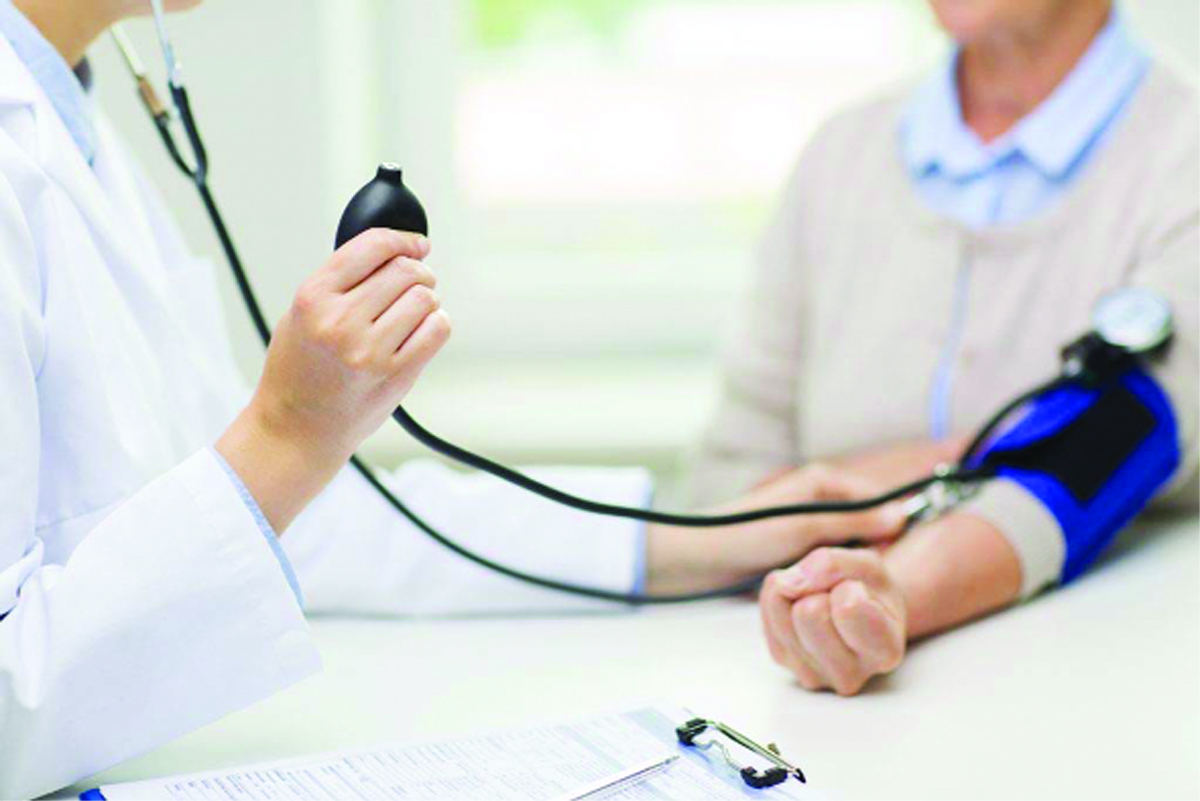Dr.Sushil Kumar Sharma
Every year, 17 May is dedicated to World Hypertension Day (WHD). However, as a result of the rapidly growing burden of disease associated with the global increase in hypertension, the International Society of Hypertension (ISH) and the World Hypertension League (WHL) has designated the entire month of May as May Measurement Month (MMM).
Today is World Hypertension Day
The World Hypertension Day was first inaugurated in May 2005 and has become an annual event ever since. The main aim of the day is to educate the public and increase awareness of hypertension, which is also commonly known as high blood pressure.
Elevated Blood pressure is a major risk factor for Coronary Heart Disease, Heart Failure, cerebrovascular disease, renal failure and atrial fibrillation. The patient with an elevated blood pressure more commonly have other risk factors for cardiovascular disease (i.e. diabetes , Insulin resistance, dyslipidemia) and target organ damage. Because risk factors may interact the overall risk for cardiovascular related diseases in hypertensive patients is increased, even in those with only mild or moderate blood pressure elevation.
Signs and Symptoms:-
High blood pressure is called the silent killer because it often does not produce any signs or symptoms to some patients. Few of the patients may have headache, dizziness, epistaxis, palpitation, muscle cramps, giddiness, burning of eyes, distended neck veins, insomnia, neck pain and vertigo. But some patients have high blood pressure for years without knowing it and that is why referred to colloquially as”the silent killer”. Sign and symptoms typically don’t occur until high blood pressure has advanced to a higher possibility of life threatening-stage like cerebrovascular or renal disease.
Types of Hypertension
Primary Hypertension
The vast majority of high blood pressure diagnoses fall into the category of “primary hypertension,” also called “essential hypertension.” This classification means that your doctor or health care team is not able to locate a single cause that explains the elevated blood pressure.
Another medical term used to describe illness without obvious underlying cause is “idiopathic,” High blood pressure is a complicated disease, with complex and often interrelated genetic and environmental factors. Thus, it is usually not possible to say for sure which elements combined to produce it.
Secondary Hypertension
A modest number of high blood pressure diagnoses are classified as “secondary hypertension.” This classification differs from a diagnosis of primary hypertension by a clearly identifiable cause of the high blood pressure
Risk factors for developing high blood pressure
* Family History
* Advanced Age
* Gender Related risk pattern
* Lack of Physical Activity
* Poor Diet, especially one that includes too much salt
* Overweight and obesity
* Alcohol Consumption
* Stress and Ethnic back ground
Possible contributing factors
There is some connection between blood pressure and these factors but science has not proven that they actually cause high blood pressure.
* Stress
* Second Hand Smoke
* Sleep Apnea
Hazards of High Blood Pressure
Hypertensive patients have stiffer arteries, and arteriosclerotic patients may have particularly high systolic blood pressure and wide pulse pressure as a conquences of decreased vascular compliance due to structure changes in the vascular wall. Recent evidence suggests that arterial stiffness has independent predictive value of cardiovascular events. Clinically, a number of devices are available to evaluate arterial stiffness or compliance, including ultrasound and magnetic resonance imaging (MRI).
Why High Blood pressure matters –
High blood pressure can lead to serious health problems .These potential consequences can motivate you to take care of your arteries and live a healthy life
Possible health consequences that can happen over time when high blood pressure is left untreated include:
* Damage to the heart and coronary arteries, including heart attack, heart disease, congestive heart failure, aortic dissection and atherosclerosis (fatty build ups in the arteries that cause them to harden)
* Stroke
* Kidney damage
* Vision loss
* Erectile dysfunction
* Memory loss
* Fluid in the lungs
* Angina
* Peripheral artery disease
Prevention of High Blood Pressure
High blood pressure is preventable and treatable. The old adage, ‘Prevention is better than cure’ is especially true for high blood pressure
Life style modiciation to manage Hypertension
Maintain body mass index between 18.5 and 24.9kg per square meter.
Reduce intake with no more than 6gm sodium chloride per day
Diet rich in fruits, vegetables, and low – fat dairy products; should be low in total and saturated fats.
Alcohol consumption For those who drink alcohol, consume < 2drinks/day in men and <1 drink/day in women
Physical activity Regular aerobic activity, e.g., brisk walking for 30 min/day at least Five days a week.
Key Message
* Proper management can control hypertension and prevent its complications.
* Effective lifestyle and drug treatments are available that could control hypertension in most individuals.Newer drugs provide better control while avoiding the side effects that have limited therapy in the past.
* A close collaboration between the physician and patient is needed to optimize better health outcomes.
(The author is HoD Cardiology)
feedbackexcelsior@gmail.com


